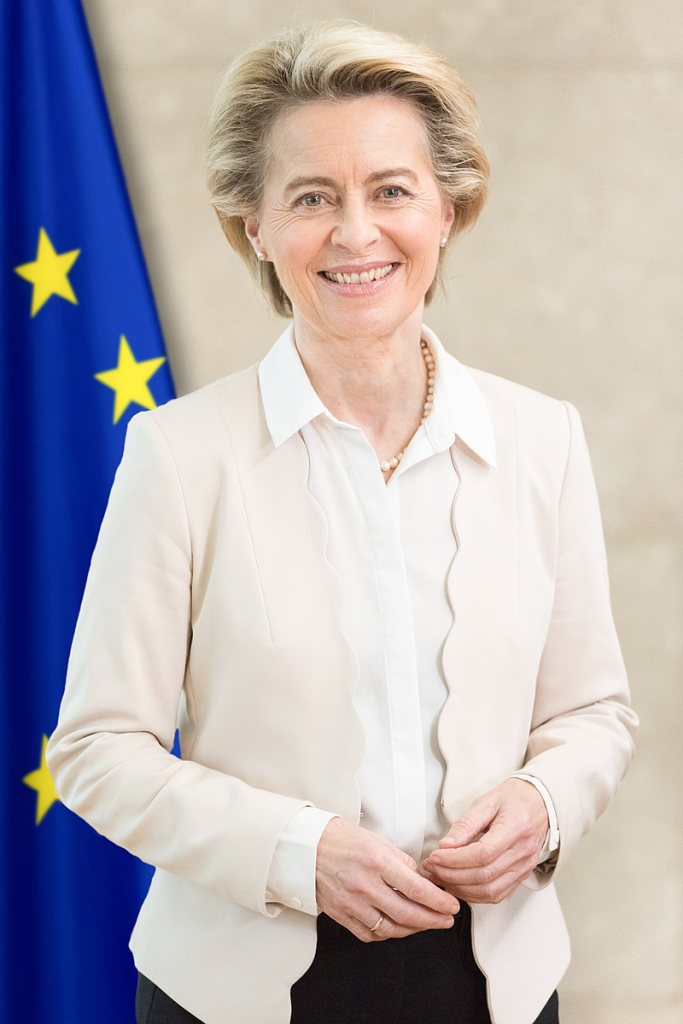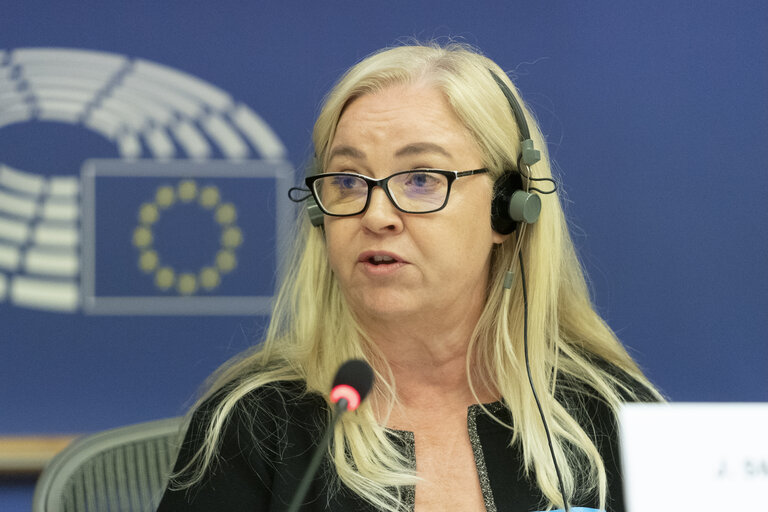LUXEMBOURG, October 17, 2022—The European Public Prosecutor’s Office (EPPO) announced last Friday, October 14, that it has launched an investigation into the acquisition of COVID-19 vaccines in the European Union (EU).
The EPPO is an independent public prosecution office of the EU, and since June of 2021, it has been investigating, prosecuting, and bringing to judgment crimes against the EU’s financial interests.
According to the EPPO’s website, crimes investigated include fraud and/or corruption that damages, or is likely to damage, the EU’s financial interests that “affect revenues, expenditures and assets covered by, acquired through, or due to the European Union budget and the budgets of the institutions, bodies, offices and agencies established under the Treaties, and budgets managed and monitored by them.”
The EPPO announcement did not specify who, nor which COVID-19 vaccine companies and contracts were being investigated. However, a September 12 article by Politico and an October 10 article by Reuters may provide some insight as to the nature of the investigation.
The European Court of Auditors published a report in September accusing the European Commission (EC) of refusing to disclose its President Ursula von der Leyen’s personal role in negotiating a €35 billion contract with Pfizer/BioNTech back in May of 2021. The contract was for 1.8 billion doses of COVID-19 vaccine for the European Union’s 2022-23 portfolio, yet, as of the end of 2021, “80% of the EU’s adult population had been fully vaccinated,” according to the report.

“We asked the Commission to provide us with information on the preliminary negotiations for this agreement (scientific experts consulted and advice received, timing of the talks, records of the discussions, and details of the agreed terms and conditions). However, none was forthcoming,” the report reads.
On page 29 of the 51-page report, it states that von der Leyen conducted preliminary negotiations in March 2021 with Pfizer/BioNTech outside of the established system for vaccine procurement and did not involve the joint negotiation team (JNT) who are responsible for negotiating the contracts.
President Ursula von der Leyen then presented to the Vaccine Steering Board on April 9, 2021, the conditions negotiated between her and Pfizer/BioNTech. The €35 billion COVID-19 vaccine contract was signed on May 19, 2021.
The report also revealed that European Ombudsman Emily O’Reilly, opened an investigation into the “European Commission’s refusal to grant public access to text messages exchanged between the Commission President [Ursula von der Leyen] and the CEO of Pfizer [Albert Bourla] at the time of the preliminary negotiations.”
The European Ombudsman is an independent and impartial body that holds the EU’s institutions and agencies to account and promotes good administration.
In January of this year, a report from O’Reilly found that “the way the Commission dealt with this request constituted maladministration.”
According to Politico, the Commission argued that a “text message or another type of instant messaging is by its nature a short-lived document which does not contain in principle important information concerning matters relating to policies, activities and decisions of the Commission” and that “the Commission record-keeping policy would in principle exclude instant messaging.”

The New York Times article revealed that for a month von der Leyen was exchanging texts and calls with Bourla and that “personal diplomacy played a big role” in a deal to purchase the Commission’s biggest COVID-19 vaccine contract.
Following the September report, Pfizer CEO Bourla pulled out of a European Parliament’s COVID-19 committee hearing on lessons learned that was scheduled for October 10, 2022. In his place, Janine Small, resident of international developed markets at Pfizer, attended.
During the meeting she denied that the Pfizer CEO negotiated the COVID-19 vaccine contract via SMS (text messaging) with von der Leyen.
“As to whether a contract negotiation such as this contract which you referred to, 1.8 billion doses, was negotiated through an SMS, I can categorically tell you that would not be the case,” Small told the European Parliament’s special committee.
Small, also shared that she had been involved in all vaccine negotiations between Pfizer and the EU since 2020, and added that talks typically are too detailed and involve too many parties to be conducted through text messages.
COVID-19 lessons learned and recommendations for the future: extracts from the exchange of views – EP Special Committee on the COVID-19 pandemic on Oct 10, 2022. pic.twitter.com/bOVLnznP39
— Lynnwood Times (@LynnwoodTimes) October 17, 2022
Small, was marred in controversy the following day when she revealed in a hearing on the European Union’s COVID-19 response, that Pfizer’s COVID-19 vaccine had never been tested before its release to the general public on its ability to prevent the transmission of COVID when asked by Dutch politician and a current Member of the European Parliament (MEP) Robert “Rob” Roos.

According to the August 2022 article, The Pfizer BioNTech (BNT162b2) COVID-19 vaccine: What you need to know, by the World Health Organization, it states that there “is modest vaccine impact on transmission” to prevent COVID infection.
Between August 2020 and November 2021, the EC signed 11 contracts with eight vaccine manufacturers providing access to up to 4.6 billion COVID-19 vaccine doses at an expected total cost of approximately to €71 billion.
The heads of the Member States’ Medicines Agencies adopted a Memorandum of Understanding allowing more flexible labelling and packaging requirements for COVID-19 vaccines. The EMA recommended granting conditional marketing authorization for the first COVID-19 vaccine on 21 December 2020, nine months after the WHO had declared the coronavirus outbreak a global pandemic.
Because the EU considered early introduction of the vaccine to be in the interest of public health, they agreed to reduce vaccine manufacturers’ risks linked to liability for adverse effects.
Under the Product Liability Directive of the EU, producers are liable for damage caused by a defect in their product, even in the absence of negligence or fault on their part. A producer can be exempted from such liability if the state of scientific and technical knowledge at the time when the producer put the product into circulation was not such as to enable the defect to be discovered.
Also, an EU citizen who suffers serious adverse effects from a medicine can file a compensation claim for damages against the manufacturer under the Directive, which has been enacted in Member States’ legislation.
Author: Mario Lotmore









